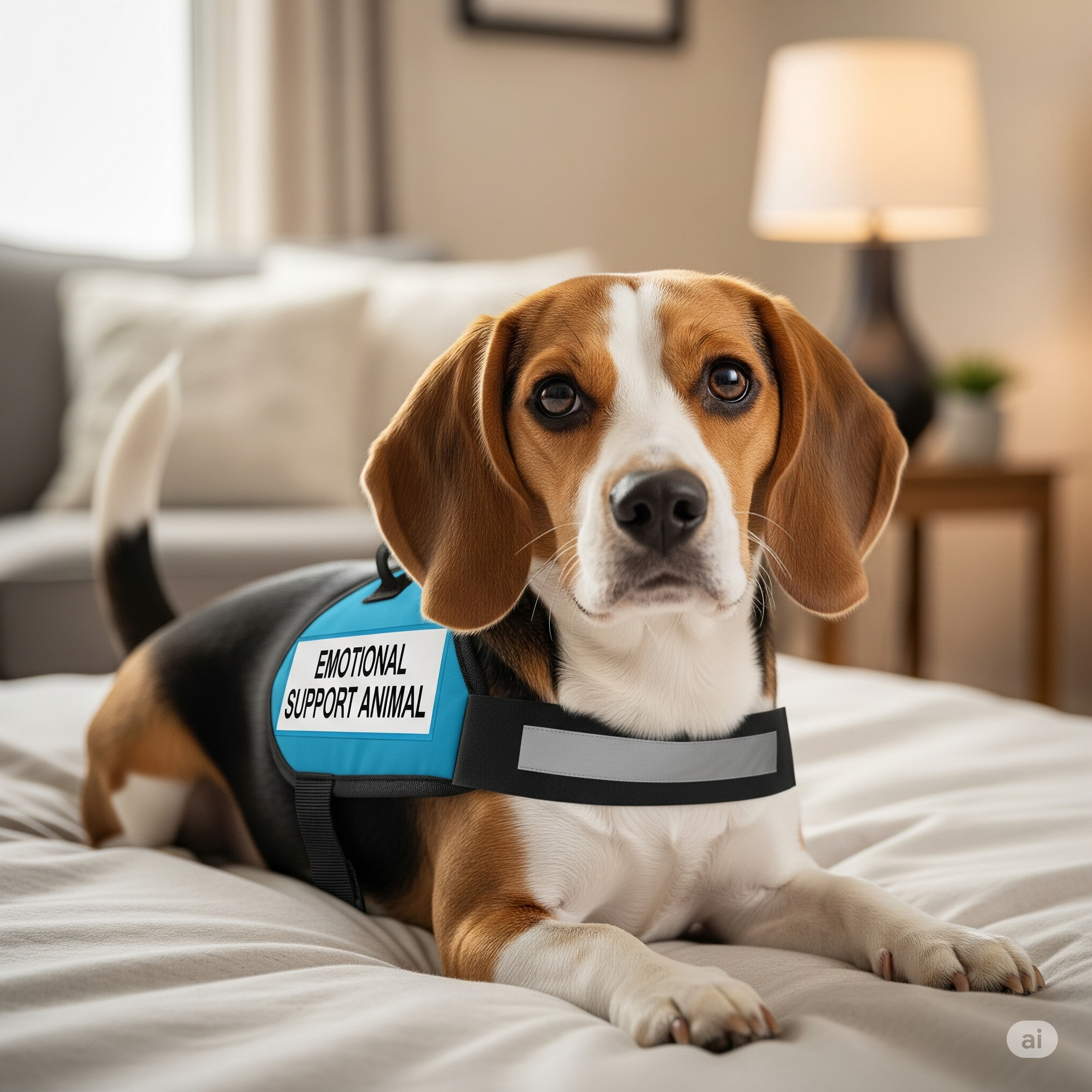If you’re in Oregon and are considering an Emotional Support Animal (ESA) to help with your well-being, you might be wondering if you can get an ESA letter without a formal mental health diagnosis. The short answer is: no, a diagnosis from a licensed mental health professional is a fundamental requirement for a legitimate ESA letter.
Why a Diagnosis is Essential
The legal basis for Emotional Support Animals, particularly concerning housing protections under the federal Fair Housing Act (FHA), hinges on the animal’s role in mitigating the symptoms of a person’s disability. Without an underlying disability, there is no legal basis for an ESA.
Here’s why a diagnosis is non-negotiable for an ESA letter in Oregon:
- Legal Requirement for “Disability”: The FHA defines a disability as a physical or mental impairment that substantially limits one or more major life activities. To qualify for an ESA as a “reasonable accommodation” under this act, you must first meet this definition of disability. A licensed mental health professional (LMHP) is the qualified party to assess whether your condition meets this criterion.
- “Disability-Related Need”: Beyond just having a disability, there must be a “disability-related need” for the animal. This means the ESA must provide emotional support that alleviates one or more identified symptoms or effects of your disability. A therapist or other LMHP determines this connection through a professional evaluation.
- Legitimacy of the ESA Letter: A valid ESA letter is written by an LMHP who is licensed to practice in your state (Oregon, in this case). This letter explicitly states that you have a mental or emotional disability and that the ESA is necessary for your mental health, helping to alleviate symptoms of that disability. Without a diagnosis to support this, the letter would lack the necessary legal and clinical foundation.
- Protection Against Misrepresentation: Requiring a professional diagnosis helps to prevent the misrepresentation of pets as ESAs. Oregon, like many states, is cautious about individuals falsely claiming their pets are assistance animals. Adhering to the diagnostic requirement ensures the legitimacy of the ESA system for those who genuinely need it.
What Constitutes a Qualifying Diagnosis?
A mental or emotional disability that can qualify for an ESA is typically recognized by the Diagnostic and Statistical Manual of Mental Disorders (DSM). Common conditions that may qualify, if they substantially limit a major life activity and are alleviated by an ESA’s presence, include:
- Anxiety disorders (e.g., generalized anxiety, social anxiety, panic disorder)
- Depression
- Post-Traumatic Stress Disorder (PTSD)
- Obsessive-Compulsive Disorder (OCD)
- Bipolar disorder
- Phobias
- Certain neurodevelopmental disorders (e.g., Autism Spectrum Disorder, ADHD, where the ESA provides specific emotional regulation)
It’s important to understand that having one of these conditions doesn’t automatically mean you’ll get an ESA letter. The LMHP must still determine that the presence of the animal is a necessary part of your treatment and directly helps mitigate your specific symptoms.
The Process in Oregon
To obtain a legitimate ESA letter in Oregon, you need to engage with an LMHP. This can be:
- Your Current Therapist or Doctor: If you already have an ongoing relationship with a mental health professional or doctor, this is often the most straightforward path. They are already familiar with your history and can assess your needs directly.
- Online Mental Health Services: Many reputable online platforms connect you with LMHPs licensed in Oregon. These services conduct comprehensive evaluations via teleconsultation to determine if you meet the criteria for an ESA letter. Be cautious of services that promise “instant” approval without a proper evaluation, as these are often scams.
In summary, while the idea of getting an ESA without a formal diagnosis might seem appealing for convenience, it’s simply not possible if you want a legally valid Emotional Support Animal. A legitimate ESA letter, which is essential for housing protections in Oregon, always stems from a professional assessment and diagnosis of a qualifying mental or emotional disability by a licensed mental health professional.





